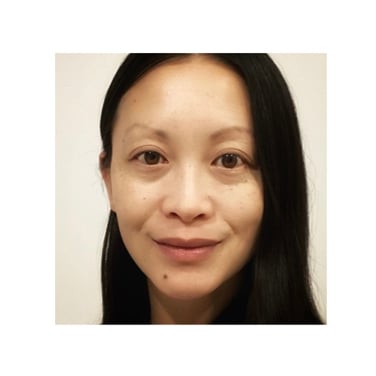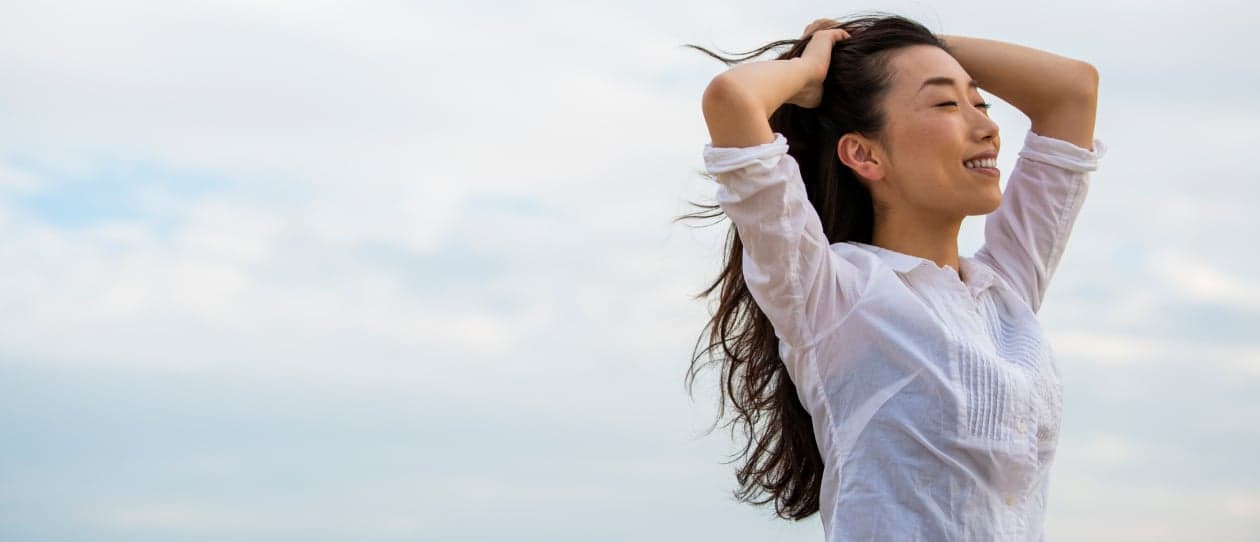
- Health hub/
- Guide To Protecting Your Nails, Hair And Skin/
- Essential Nutrients for Hair, Skin, and Nails on a Vegan Diet (and How to Get Them)


Many people choose to follow a vegan diet because of its health benefits, such as improving heart health by reducing saturated fat intake from red meat. The diet also comes with some beauty perks. One 2023 review paper in the Nutrient Journal notes that plant-based diets have gained popularity as a complementary therapy for skin health.
A vegan diet eliminates all animal products, so a common concern can be whether and how you will get enough of the essential nutrients you need for a healthy, functioning body. While a vegan diet certainly requires some deliberation and consideration, the key is ensuring a varied diet that will help you accumulate nutrients from all these foods.
A vegan diet can provide the nutrients to support healthy skin, hair, and nails.
How do plant-based foods benefit skin health?
According to the Nutrient Journal review paper, plant-based diets are rich in antioxidant-containing foods, which may help protect cells from oxidative stress. Free radicals and inflammation are associated with changes in skin health and appearance.
What is gut-skin axis?
The Nutrient Journal review paper discusses the importance of the diet–gut–skin axis. An imbalance of gut bacteria can increase the risk of inflammation, negatively affecting the skin. Many plant-based foods are beneficial to the gut bacteria, helping to control inflammation and ensure healthy skin.
Integris Health discusses how probiotics, the beneficial bacteria that support gut health, can positively impact the skin. Fermented foods like coconut or soy yogurts, kimchi and sauerkraut are rich in probiotics and may support gut health, which is linked to skin health in emerging research. Additionally, prebiotic-rich foods, such as garlic, onions and bananas, can nourish the beneficial bacteria in the gut.
Limiting processed, sugary and high foods can also aid in reducing inflammation.
Protection from free radical damage
Plant-based diets include foods abundant with antioxidants, which help fight cell damage from free radicals. Oxidative stress from free radicals is associated with changes in skin appearance. Free radicals are unstable oxygen molecules from pollution, smoking, pesticides, UV rays, and poor diets.
Fruits and vegetables are a great source of antioxidants, and eating a variety of them can help protect our skin from environmental sources of free radicals.
Hair and nail health
Harvard University outlines the vitamins and minerals that contribute to maintaining healthy hair. These include vitamin A, vitamin B2 (riboflavin), vitamin B3 (niacin), vitamin B7 (biotin), vitamin B9 (folate), vitamin B12, vitamin C, vitamin D, vitamin E, iron, selenium, and zinc. A lack of any of these in the diet can impair hair health.
For example, vitamin D is essential and is required to form the cells that develop into hair follicles. Vegan sources of vitamin D include fortified spreads such as butter, fortified milk, breakfast cereals, and exposure to sunlight.
The American Society of Haematology reports that iron is needed to maintain healthy cells, skin, hair, and nails. For example, Harvard University describes how iron is responsible for carrying oxygen to the hair follicles so hair can grow.
Collagen is a structural protein involved in the formation of hair and nails. Getting adequate protein through the diet helps support healthy hair and nail structure. Vitamin C intake will also aid in collagen production.
The Cleveland Clinic lists zinc as an important nutrient for maintaining nail strength.
Keratin is a protein that helps form the outer layer of nails, hair, and skin. According to the Cleveland Clinic, the body produces keratin naturally, but certain foods help the body produce keratin. These include broccoli, carrots, eggs, garlic, kale, salmon, and sweet potatoes.
Nutrients from a vegan diet for beauty benefits
Vitamin C
Vitamin C is used to produce collagen, an important component of the skin, and helps protect against damage from UV rays. Collagen is also used to help heal skin and wounds. It has an important role as an antioxidant, helping to protect skin cells from damage from free radicals. According to Food Insight, the highest sources include bell peppers, citrus fruits, and their juices.Zinc
As Food Insight reports, zinc plays a major role in healing skin and wounds due to its role in the production of collagen. Vegan sources of zinc include whole grains, nuts, and seeds.Biotin
Biotin is a B vitamin that helps convert food into energy. As Food Insight reports, inadequate biotin intake can contribute to hair thinning, scaly skin, and brittle nails. Foods high in biotin includes nuts and vegetables.Protein
Collagen is a protein that makes strong connective tissue, which gives the skin its elasticity. As the body ages, it produces less collagen. Excess sun exposure, smoking, alcohol, and lack of sleep and exercise can also lead to a drop in collagen production and aging skin.
According to Harvard University, some foods can support collagen production, and these vegan sources include legumes and soy products.
Animal sources are complete proteins that contain all nine essential amino acids the body needs. Vegetarian proteins are incomplete proteins, but according to dietitian Gillian Culbertson, RD, in an article for Cleveland Clinic, “For people who don’t eat much meat, or no meat at all, a wide variety of plant foods such as legumes, lentils, nuts, seeds and whole grains daily will allow for you to get the complete proteins you need.”
Vitamin A
Another source of antioxidants, vitamin A, is also known as retinol in the skincare world. According to Integris Health, vitamin A supports healthy skin renewal and cell turnover. If you don’t get enough vitamin A in your diet, it can lead to dry, scaly skin and hair loss.
Great vegan sources of vitamin A include carrots, sweet potatoes, and spinach.
Omega 3 fatty acids
Omega-3 fatty acids are healthy fats, as the Mayo Clinic describes, locking moisture into hair, nails, and skin and supporting appearance and hydration. They are also anti-inflammatory and mainly found in fatty fish.
Algae oil is a vegan alternative source of omega-3, derived from algae, the green, moss-like film you might see on rocks at the beach. However, the algae used in supplements is grown in controlled laboratory environments.
Algae oil contains both EPA and DHA, so like fish oil, it provides anti-inflammatory benefits that help heal and protect the skin. Omega-3s may also help reduce collagen damage, a key factor in skin ageing, according to Oregon State University.
Algae oil is available in liquid or capsules and doesn’t have the fish odour that comes with fish oil.
Certain vegan foods can also contain alpha-linolenic acid, a precursor to EPA and DHA of omega-3 fatty acids. These foods include walnuts, linseed oil, chia flax seed, soybeans, tofu, and cruciferous vegetables such as broccoli.




